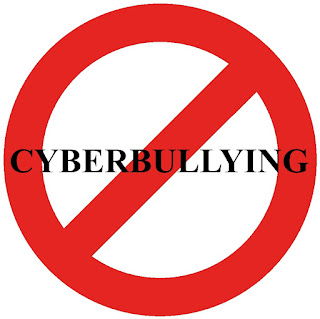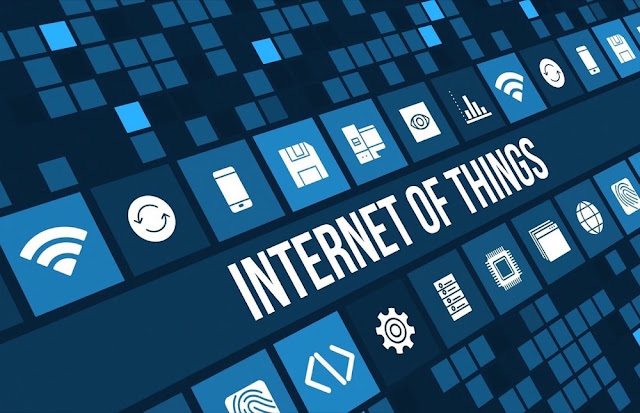Cyberbullying is not a game
Cyberbullying is bullying that takes place
using electronic technology. Electronic technology includes devices and
equipment such as cell phones, computers, and tablets as well as communication
tools including social media sites, text messages, chat, and websites.
Cyberbullying has
become increasingly common, especially among teenagers. Harmful bullying
behavior can include posting rumors about a person, threats and sexual
remarks, disclose victims' personal information. Bullying or harassment
can be identified by repeated behavior and an intent to harm. Victims may
have lower self-esteem, increased suicidal ideation, and a variety of
emotional responses, retaliating, being scared, frustrated, angry, and
depressed. Individuals have reported that cyberbullying can be more
harmful than traditional bullying.
Types of
Cyberbullying:
Cyberstalking is a form of online harassment in which
the perpetrator uses electronic communications to stalk a victim.
Cyberstalking is considered more dangerous than other forms of cyberbullying
because it generally involves a credible threat to the safety of the victim.
Cyberstalkers may send repeated messages intended to threaten or harass their
victim. They may encourage others to do the same, either explicitly or by
impersonating their victim and asking others to contact them.
Internet
trolls intentionally try
to provoke or offend others in order to elicit a reaction. Trolls and
cyberbullies do not always have the same goals: while some trolls engage in
cyberbullying, others may be engaged in comparatively harmless mischief. A
troll may be disrupt either for their own amusement or because they are
genuinely a combative person.
Why
Cyberbullying is Different
Kids who are being
cyberbullied are often bullied in person as well. Additionally, kids who are
cyberbullied have a harder time getting away from the behavior.
- Cyberbullying
can happen 24 hours a day, 7 days a week, and reach a kid even when he or
she is alone. It can happen any time of the day or night.
- Cyberbullying
messages and images can be posted anonymously and distributed quickly to a
very wide audience. It can be difficult and sometimes impossible to trace
the source.
- Deleting
inappropriate or harassing messages, texts, and pictures is extremely
difficult after they have been posted or sent.
Effects of Cyberbullying
Cell phones and computers themselves are not to blame for
cyberbullying. Social media sites can be used for positive activities, like
connecting kids with friends and family, helping students with school, and for
entertainment. But these tools can also be used to hurt other people. Whether
done in person or through technology, the effects of bullying are similar.
Kids who
are cyberbullied are more likely to:
·
Use
alcohol and drugs
·
Skip
school
·
Experience
in-person bullying
·
Be
unwilling to attend school
·
Receive
poor grades
·
Have
lower self-esteem
·
Have
more health problems
Which leads us to
another topic called Online Shaming:
Online
shaming is a form of Internet vigilantism in which targets
are publicly humiliated using technology
like social and new media. Proponents of shaming see it as a
form of online participation that
allows hacktivists and cyber-dissidents to right
injustices. Critics see it as a tool that encourages online mobs to
destroy the reputation and careers of people or organizations who made
perceived slights.
Online shaming
frequently involves the publication of private information on the Internet
(called doxing), which can frequently lead to hate messages and death
threats being used to intimidate that person. The ethics of public
humiliation has been a source of debate over privacy and ethics.
Public
shaming: The social
networking tools of the Internet have been used as a tool to easily and
widely publicize instances of perceived anti-social behavior. After some
controversial incidents of public shaming, the popular link-sharing and
discussion website Reddit introduced a strict rule against the
publication of non-public personally-identifying information via the
site (colloquially known on Reddit and elsewhere as "doxing" Those
who break the rule are subject to a site-wide ban, and their posts and even
entire communities may be removed for breaking the rule.
Types of
public shaming:
Doxing
Doxing involves
researching and broadcasting personally identifiable
information about an individual, often with the intention of harming that
person. This can often lead
to extortion, coercion, harassment and other forms of
abuse. On February 1, 2017, Reddit, a social news website, has banned two
alt-right communities’ doxing and violating Reddit community guidelines.
Revenge
porn
Nonconsensual
pornography is a form of sexually explicit recording publicized on the Internet
in order to humiliate a person, frequently distributed by computer
hackers or ex-partners (called revenge porn). Images and video of
sexual acts are often combined with doxing of a person's private details, such
as their home addresses and workplaces. Victims' lives can be ruined
as a result, the victims exposed to cyber-stalking and physical attack
as well as facing difficulties in their workplace should their images become
known as a result of routine checks by employers. Some have lost their jobs,
while others have been unable to find work at all.
Negative
reviews
Products frequently
attract negative reviews on Goodreads, Amazon and other online
commerce websites.
In many cases, users
of Yelp write reviews in order to lash out at corporate interests or
businesses they dislike. During the Chick-fil-A same-sex marriage
controversy, activists encouraged a
consumer boycott of Chick-fil-A and left negative reviews
of the site's locations on restaurant rating websites after the founder
declared that corporate profits would be donated to political causes
opposing same-sex marriage in the United States. In 2015 an Indiana
pizzeria was swarmed with negative Yelp reviews after the owner said it
wouldn't cater gay weddings. Similar reactions have frequently followed
bakers refusing to make cakes for gay weddings. After Cecil the lion was
shot by an American recreational big-game hunter, his business was flooded
with negative reviews.
Government
shaming
Various governments
have used "name and shame" policies to punish tax
evasion, environmental violations and minor crimes like littering.
In the end don't be afraid of being cyberbullied and report them






Comments
Post a Comment